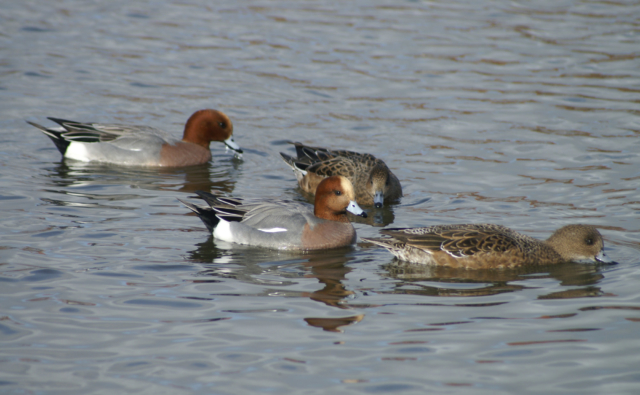Whereas the surface area of wetlands has declined sharply throughout the world since the second half of the 20th century, the situation is even more alarming in the Mediterranean Basin. Indeed, while 35% of wetlands in the world have disappeared since 1970—an already very high figure—48% of Mediterranean wetlands have been lost (see the MWO report—Outlook 2: Solutions for Sustainable Mediterranean Wetlands).
The main causes are very well known: high demographic pressure (particularly in coastal areas), the increasingly rapid conversion of wetlands into farmland, the skyrocketing demand for water, industrial and urban infrastructure projects, pollution, and recurring political instability. Given that the Mediterranean Basin is affected by all of these issues at the same time, the conservation of natural habitats and biodiversity is often pushed down the political agenda.
A project focussing on the southern and eastern parts of the Mediterranean Basin
Based on this observation, in October 2018 at a meeting in Tunis, the Tour du Valat launched an ambitious project in seven countries in the eastern and southern parts of the Mediterranean Basin (Algeria, Morocco, Tunisia, Jordan, Lebanon, Libya, and Turkey) with financial support from the Agence française de développement (AFD).
Tthe threats to natural habitats are often the most significant in the least developed countries in the Basin. Due to the fact that they are more vulnerable in socio-economic terms, the people living there are also those who can benefit the most from the good conditions of natural habitats.

Wetlands provide countless ecosystem services. They purify water, mitigate floods, store water resources, and are sources of resilience during droughts. They also provide resources that are essential for human well-being and development, such as farm products, fish, construction materials, and medicinal substances.
The ultimate objective of this project is to convince the decision-makers in the countries concerned to take better account of wetlands. That is why it will focus on civil society organisations (CSOs), in the aim of helping them improve their capacity to influence local and/or national development and land-use policies (learn more about the project).
One of the main goals of the activities to be carried out entails strengthening the capacities of the CSOs to participate in the Mediterranean Wetlands Alliance, which was established in 2017 to better organise CSO actions and increase the visibility of their wetland conservation initiatives (learn more about the Alliance).
In addition, this project makes extensive use of the network of civil society organisations that has been established by the Tour du Valat in recent years throughout the Mediterranean Basin, particularly within the framework of the Mediterranean Waterbird Network.
Training organised in several countries
Since 2018, within the scope of this project, several training courses have already taken place in several of the countries concerned by this project, in partnerships with local envrionmental protection stakeholders.
The first training course took place in Azraq (Jordan) in April 2019. Co-organised by the Tour du Valat and the Royal Society for Nature Conservation, it focused on how to make use of water dynamics to restore wetlands: a crucial concern in a region greatly affected by water stress (find out more).

The second course was held in Izmir (Turkey) in June 2019, on the questions of how to set up an advocacy campaign, develop an environmental education programme, and train trainers.

The third, organised in Tirana (Albania) in partnership with the Albanian NGO INCA, focused on how to manage risks in wetlands.
Finally, the fourth took place in France at the Tour du Valat in November 2019, and focused on the development of local and national wetland observatories.
Starting in 2020, the training courses will focus on institutional capacity building for CSOs in areas such as good governance, fund raising, and project management.
By the end of 2019, some 40 individuals (including a large proportion of women) from 13 CSOs will have benefited from various training courses. The CSOs that were able to attend these courses will subsequently organise such training in their own countries for newly emerging organisations, to multiply the effects of the project.
Phase two of the project initiated in November 2019
The training at the Tour du Valat in November 2019 also created the opportunity to officially launch the second phase of the project, which will be funded by the French Global Environment Facility (FFEM).
This new €662,500 agreement will benefit 10 civil society organisations from the countries already involved in the AFD project, along with 2 other CSOs, one from Albania, and the other from Montenegro (find out more).

It will make it possible, on the one hand, to further strengthen current project activities, and on the other, to develop new activities, such as additional training courses, micro-projects in the field that target specific wetlands, discussion forums on emerging issues in Mediterranean wetlands, as well as capacity building for sustainable resource management, enhanced monitoring of wetlands, and training modules for universities on waterbirds and wetlands.
Contacts:
- Christian Perennou (e-mail / 04 90 97 29 82), Project Leader at the Mediterranean Wetlands Observatory (MWO) for the training part of the project
- Laura Dami (e-mail / 04 90 97 29 84), Project Leader at the Mediterranean Waterbird Network (MWN) for the capacity building and waterbird monitoring parts of the project
 |
 |
 |



